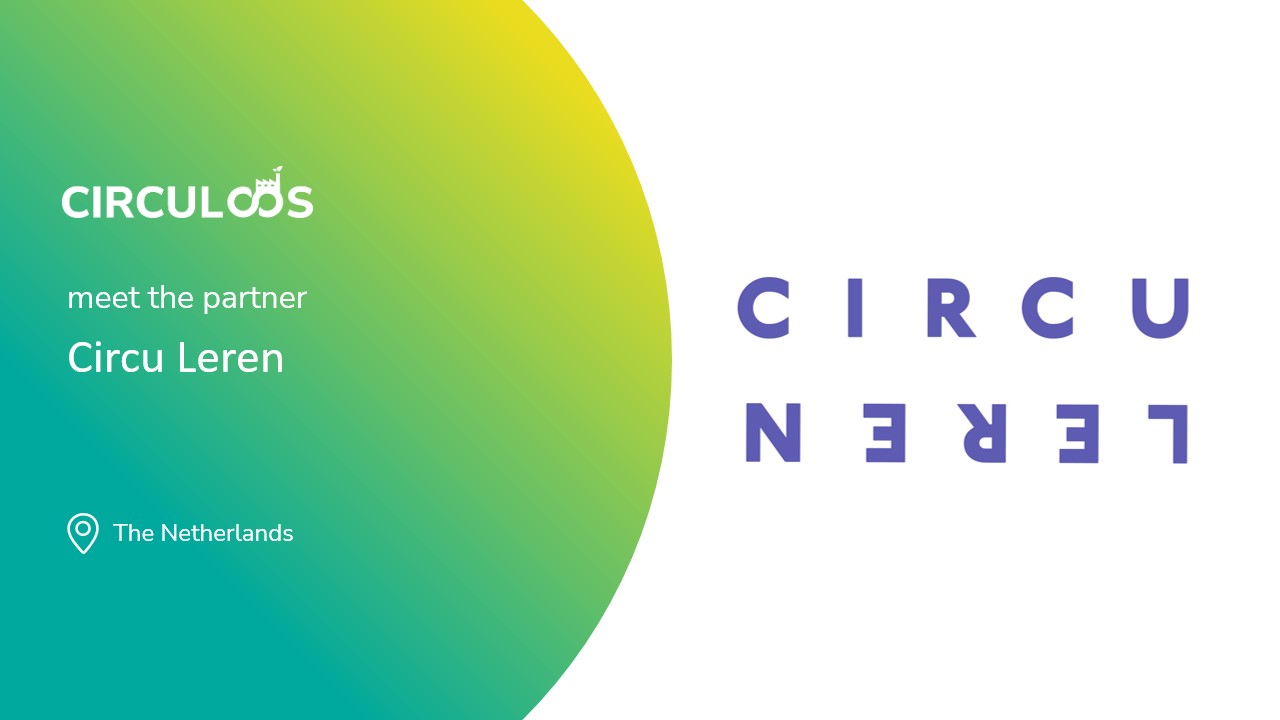Circu Leren is a Dutch company committed to building sustainable, circular interiors and pavilions. With a strong design-to-build approach, they focus on connecting material suppliers and clients, transforming creative ideas into practical, eco-conscious constructions.
Explain what your role is precisely in the CIRCULOOS project.
We are a partner in the Dutch Pilot together with Herso and Plennid. We support our clients in creating sustainable interiors and pavilions using quality materials. Additionally, we turn design concepts into 3D construction projects by connecting supply with demand.
What specific challenges or opportunities do you hope to address or explore through your involvement in the project?
One major challenge is sourcing the right reused and recycled materials at the right time and place for our customers. The idea of an online marketplace—not limited to our sector but enabling cross-sector collaboration—is exciting, as it would make circular practices more viable. We’re exploring new business models, ecodesign, and product passports. Tracking physical products digitally is a key challenge. Human involvement is still needed for documentation, and people bring their own perspectives. Another challenge is developing a sustainable business model that works economically.
How does your company’s participation in the CIRCULOOS project relate to your previous experiences in sustainability, digital transformation, or circular practices within your manufacturing processes?
We have extensive experience in temporary interior building projects and have completed many pilots with our clients. This experience has shown us the need to upgrade our ways of working. Through our hands-on “learning by doing” approach, we aim to push boundaries and build new systems that our industry can adopt.
How do you plan to collectively engage in knowledge-sharing and collaborative efforts, such as workshops, brainstorming sessions, or technical discussions, to enhance the project’s outcomes?
The current Dutch pilot partners are frontrunners in circularity in the Netherlands. We’re often invited to give presentations and host tours at our factory. We use these events as promotional opportunities and regularly organize our own events, often in collaboration with local partners.
How do you see your involvement in the project contributing to the growth and innovation of the broader manufacturing ecosystem?
As pioneers in the circular economy, we understand the value of collaboration—after all, there’s no competition in doing good for the world. These collaborations are built on human connections. With digital connectivity, we aim to expand our network—not only to exchange knowledge but also to enable a new way of distributing value through reused and recycled materials.
What challenges do you foresee in adopting circular manufacturing practices within your organisation?
Certification of materials and their pricing are major challenges. Using locally manufactured materials increases labour costs, which in turn raises material prices. Herso is currently able to produce at competitive prices, but profits remain low. This slows down investment and scaling. We hope that by making Herso 2.0’s production model more attractive to investors, we can overcome this barrier.
What is your future vision of the project?
We envision that this project will initiate new manufacturing practices within the wood industry in the Netherlands. Our aim is to scale up the reuse and recycling of wasted wood.
How will the Circular Economy change the manufacturing sector?
Factories are currently designed for linear production. Transitioning to circular intake—using reused or recycled materials—demands new logistics, warehouse layouts, and production methods. Sourcing new materials is no longer as simple as one phone call. They come in various shapes and sizes and require coordination with multiple suppliers. Handling this requires not only logistical adjustments but also documentation of material origin, certification, and the development of service systems and legal frameworks to retain ownership. This will radically transform how factories operate!


